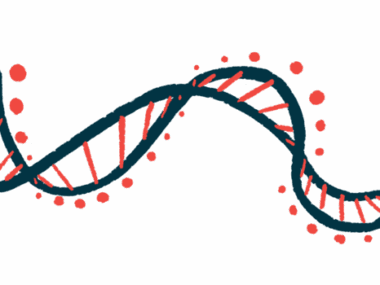Chinese Herbal Medicine Found Effective in Preclinical Study
Written by |

Billion Photos/Shutterstock
A Chinese herbal medication called SS-1 can reduce inflammation and improve saliva flow, likely due to an inhibitory effect on dendritic cells — a component of the innate immune system, according to a recent study in a mouse model of Sjögren’s syndrome.
The study, “Effect of the Chinese Herbal Medicine SS-1 on a Sjögren’s Syndrome-Like Disease in Mice,” was published in the journal Life.
Sjögren’s syndrome is an autoimmune disorder in which a misguided immune response turns against the glands that produce tears and saliva, resulting in dry eyes and mouth.
The disorder currently lacks disease-modifying medications, with patients relying instead on therapies that provide symptomatic relief. Although some patients seek out Chinese herbal medicines, there has been no scientific evidence that they can effectively treat Sjögren’s.
In a previous clinical trial (NCT02110446), researchers affiliated with the China Medical University Hospital in Taiwan, as well as several other Taiwanese institutions, investigated the potential of SS-1 — an herbal formula whose ingredients have anti-inflammatory, immunomodulatory, and antifibrotic effects — as a treatment for Sjögren’s syndrome.
The trial confirmed the therapeutic benefits of SS-1 in patients, but the mechanisms leading to such positive effects remained unknown.
To answer that question, the same team examined the effects of SS-1 in a mouse model with experimental Sjögren’s syndrome. The disease was induced by injecting animals with proteins of the submandibular salivary gland, which mimics or “recapitulates the key features of human [Sjögren’s syndrome],” the researchers wrote.
Two weeks after disease induction, animals were assigned randomly to receive SS-1 or water, given orally twice a day for about 1.5 months.
Results showed that, compared with water, SS-1 treatment significantly increased saliva flow and reduced the number of antibody-producing immune cells that infiltrated the submandibular glands producing saliva.
It also significantly reduced the number of inflammatory cytokines — small molecules used by immune cells to communicate — found in mouse salivary glands, and limited the growth of the immune T-cells that produce them. These molecules tend to be overproduced in Sjögren’s syndrome.
The researchers investigated the effect that SS-1 might have on anti-SSA and anti-M3R antibodies, which play key roles in Sjögren’s syndrome. Although the treatment lowered the amount of anti-M3R antibodies, it had no significant effect on those directed against SSA.
The team also noted that dendritic cells, a component of the adaptive immune system, matured less in response to SS-1 treatment. As these cells mature, they become capable of activating the immune cells that produce inflammatory cytokines associated with Sjögren’s syndrome.
The therapeutic effect of SS-1, they suggested, may be related to its ability to partially prevent dendritic cells from maturing, thereby suppressing the downstream cytokines.
“These results,” the researchers concluded, “indicate that SS-1 treatment may be an effective and safe therapeutic strategy and can be used as an immunomodulator for T-cell-mediated autoimmune diseases, including [Sjögren’s syndrome].”






